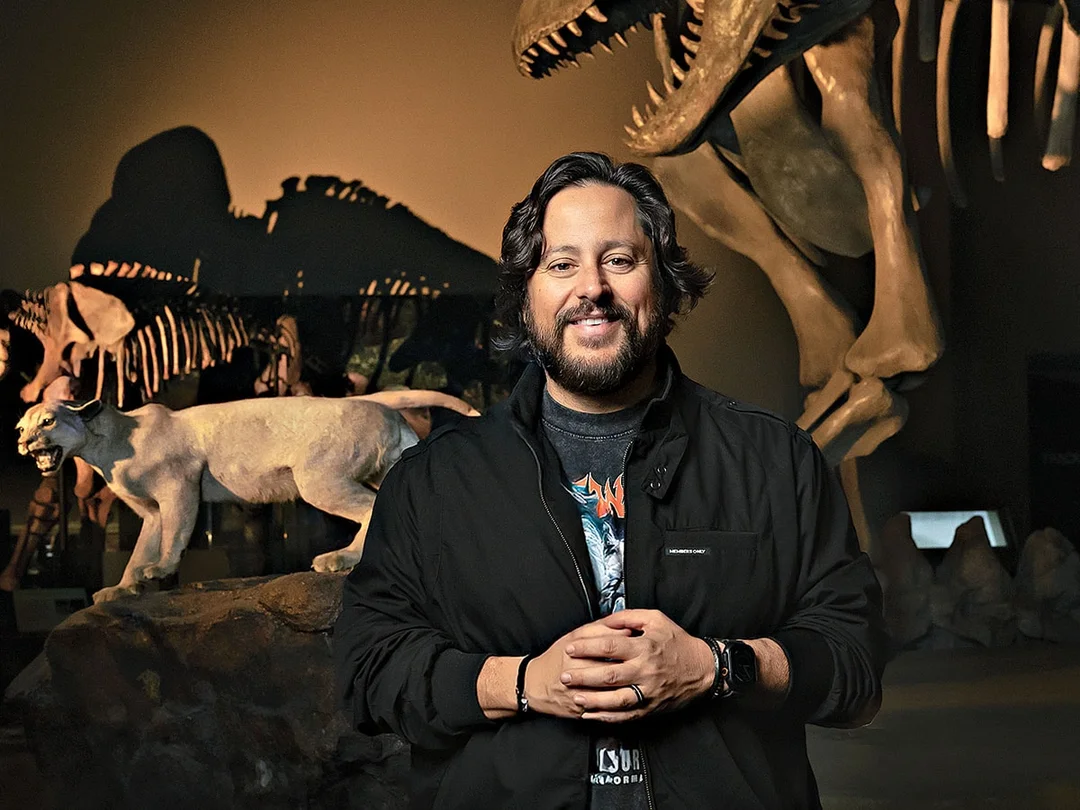
The Fascinating Venture of De-extinction: Meet Ben Lamm and Colossal
In a world increasingly marked by extinction and loss of biodiversity, a new and fascinating venture is emerging. Ben Lamm, a Texan entrepreneur, has established Colossal—one of the pioneering companies dedicated to de-extinction. This endeavor not only seeks to revive long-lost species such as the woolly mammoth but also aims to save critically endangered species that are on the brink of disappearing forever.

Founded alongside renowned geneticist George Church in 2021, Colossal stands at the intersection of cutting-edge science and commercial ambition, reflecting innovative efforts to utilize advanced techniques like CRISPR gene editing. Lamm aims to rekindle the traits of extinct species, such as the mammoth’s size and coat, in genetically engineered animals like the woolly mice produced at their Dallas labs. These mice serve as proof of concept for methods that could potentially lead to the resurrection of the majestic woolly mammoth.
“The problem we face is habitats around the planet are changing at a rate faster than evolution can keep up,” laments Beth Shapiro, Colossal's chief science officer. With over 46,000 species critically endangered, the urgency behind their work cannot be overstated.
Although some skeptics view Colossal's mission as fraught with ethical dilemmas, the potential financial viability is undeniable. Lamm estimates that governments will start to invest in such advanced conservation methods to avert ecological disasters far more than traditional conservation techniques would allow. In a world where climate change poses challenges, this venture opens dialogue on "What happens when myth meets reality?" Can we really engineer the past to save our future?

As exploratory conversations with various governments persist, Lamm highlights the shift in perspective toward investing in unconventional conservation science. “If you had told me that governments would pay for this type of science, I would have been skeptical. But we are seeing change.” This potential financial support hints at a new era of biodiversity contracts that could shape future conservation policies.
However, not all are convinced that this ambitious strategy is sound. Critics like Karl Flessa describe it as “ill-advised” and highlight concerns regarding the repercussions of reintroducing genetically modified organisms back into the wild. As intriguing as the concept is, it raises profound questions about our right to play god in nature.

As the human race grapples with its impact on biodiversity, the efforts at Colossal shine a glimmer of hope amid despair. Can science lead to a path where we not only recover lost species but also ensure the survival of those still extant? As we delve deeper into these questions, we welcome your thoughts—what is your perspective on the concept of de-extinction? Share your comments with us!